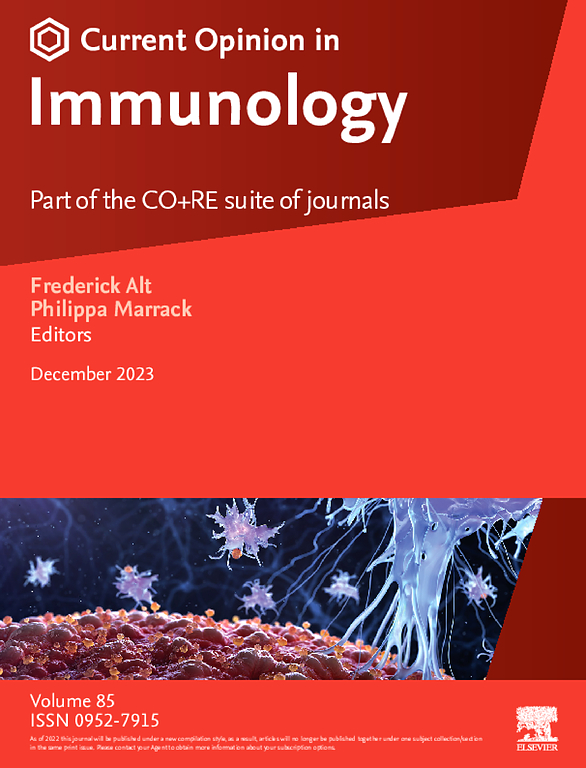Implication of epigenetic factors in development and recurrence of psoriasis
IF 5.8
2区 医学
Q1 IMMUNOLOGY
引用次数: 0
Abstract
Psoriasis is a chronic autoimmune skin disease characterized by abnormal proliferation and differentiation of keratinocytes, with a complex pathogenesis often linked to environmental and genetic factors. Although many treatments are available, the disease still exhibits a high recurrence rate. Epigenetic regulation appears to bridge external stimuli and genetic abnormalities in the development of psoriasis. Skin-resident cells may contribute to disease recurrence through an ‘inflammatory memory’ formed through epigenetic modifications. This review focuses on skin-resident cells in psoriasis, elucidating their roles in disease progression and recurrence from an epigenetic perspective, providing scientific evidence for targeted therapies.
表观遗传因素在银屑病发展和复发中的意义
银屑病是一种慢性自身免疫性皮肤病,以角质形成细胞异常增殖和分化为特征,其发病机制复杂,常与环境和遗传因素有关。虽然有许多治疗方法,但这种疾病仍有很高的复发率。表观遗传调控似乎是银屑病发展过程中外部刺激和遗传异常的桥梁。皮肤驻留细胞可能通过表观遗传修饰形成的“炎症记忆”导致疾病复发。本文综述了银屑病中皮肤驻留细胞的研究进展,从表观遗传学角度阐明其在疾病进展和复发中的作用,为靶向治疗提供科学依据。
本文章由计算机程序翻译,如有差异,请以英文原文为准。
求助全文
约1分钟内获得全文
求助全文
来源期刊
CiteScore
13.30
自引率
1.40%
发文量
94
审稿时长
67 days
期刊介绍:
Current Opinion in Immunology aims to stimulate scientifically grounded, interdisciplinary, multi-scale debate and exchange of ideas. It contains polished, concise and timely reviews and opinions, with particular emphasis on those articles published in the past two years. In addition to describing recent trends, the authors are encouraged to give their subjective opinion of the topics discussed.
In Current Opinion in Immunology we help the reader by providing in a systematic manner: 1. The views of experts on current advances in their field in a clear and readable form. 2. Evaluations of the most interesting papers, annotated by experts, from the great wealth of original publications.
Current Opinion in Immunology will serve as an invaluable source of information for researchers, lecturers, teachers, professionals, policy makers and students.
Current Opinion in Immunology builds on Elsevier''s reputation for excellence in scientific publishing and long-standing commitment to communicating reproducible biomedical research targeted at improving human health. It is a companion to the new Gold Open Access journal Current Research in Immunology and is part of the Current Opinion and Research(CO+RE) suite of journals. All CO+RE journals leverage the Current Opinion legacy-of editorial excellence, high-impact, and global reach-to ensure they are a widely read resource that is integral to scientists'' workflow.

 求助内容:
求助内容: 应助结果提醒方式:
应助结果提醒方式:


